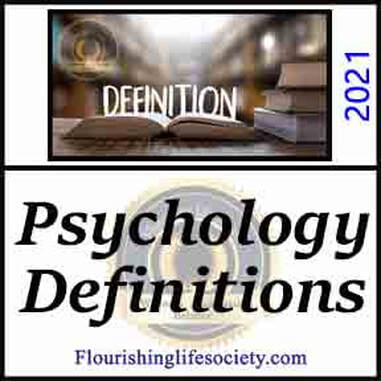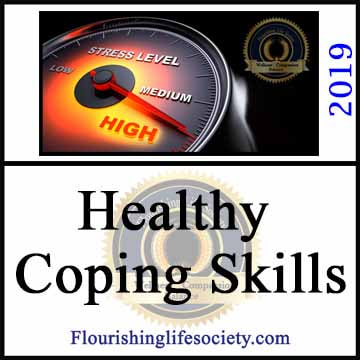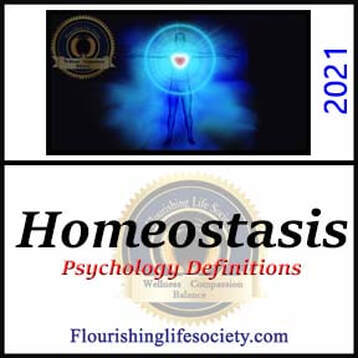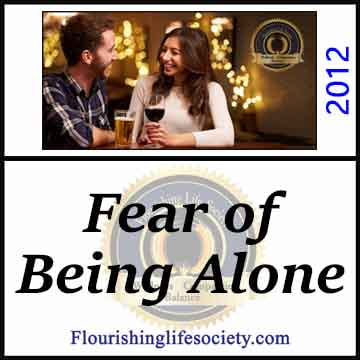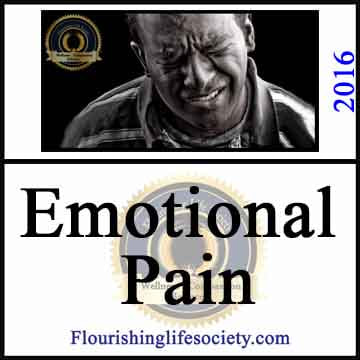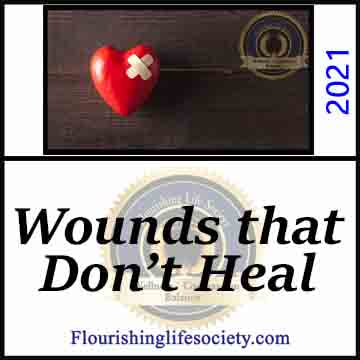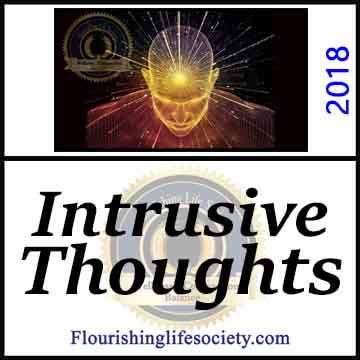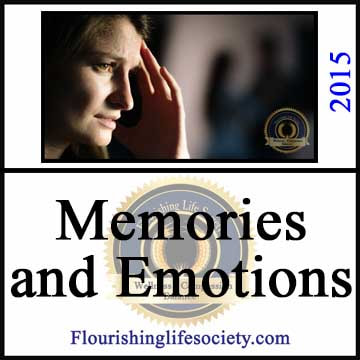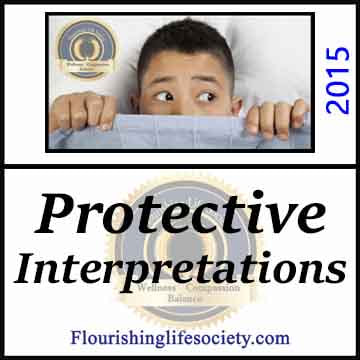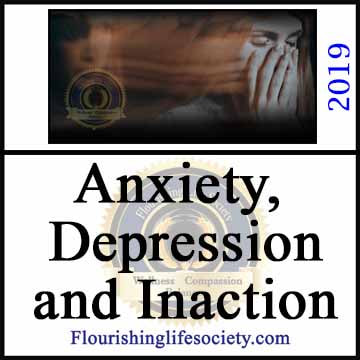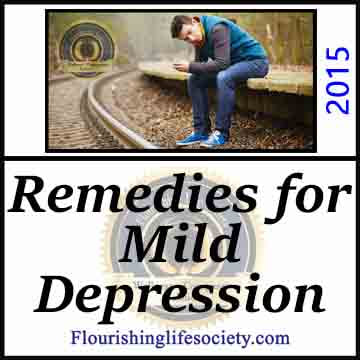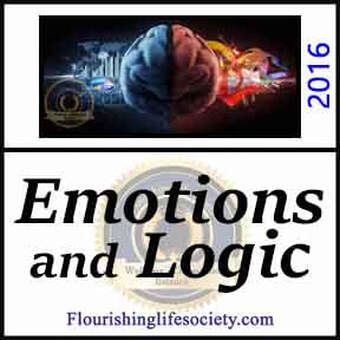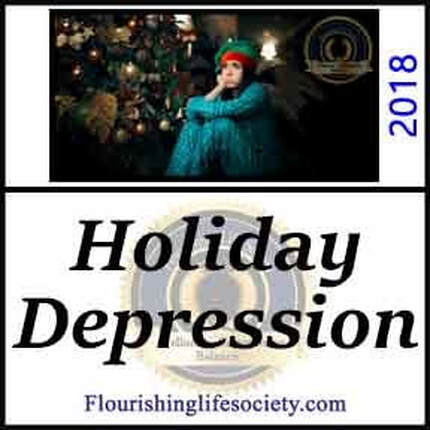Home | Psychology of Wellness | Holiday Depression
BY: T. Franklin Murphy | November 2018 (edited December 22, 2021)
Often hurtful anxieties and sorrows accompany the joys. The season can be marred by destructive ruminations. We can combat the Christmas Blues.
|
We are in the heart of the holiday season. Somewhere lost in the ribbons, festive drinks, and family gatherings a throng of loneliness chokes the glee out of the season for a growing number of people. Along with the joys come the anxieties—the rush. Christmas memories are more salient. Tragedies and sorrows that visit during holiday seasons tend to be drudged up along with the unpacking of the Christmas wreath. The celebrations often are bittersweet as we remember the missing pieces in our joyous life.
My childhood memories of Christmas center around the annual Christmas eve bash. My mother would bake goodies for weeks in preparation for the family celebration. Holiday punch and ham decorated the table, while laughter and delight filled our hearts. During these formative years, I never fathomed Christmas could be anything but happy. It wasn’t until my late teen years that I was exposed to a widening world. My older brother asked for permission to invite someone to our family celebration—someone who had no where to go. We met Mary. "Christmas memories are more salient. Tragedies and sorrows that visit during holiday seasons tend to be drudged up along with the unpacking of the Christmas wreath."
Lonely on ChristmasMary wandered around the local University campus. Her sixties attire with long flowing pastel robes and a scarred faced from picking at old wounds kept the students and staff at a comfortable distance. She frequently prophesied, lost in a mystical world that collided with reality and took over during her heavy drug use during the previous revolutionary decades of freedom. My first selfish instinct was to curse my brother for defiling our joyous occasion with an outsider.
During our evening gift exchange, my mother gave Mary a small box with a ribbon, containing a carefully chosen necklace. Mary pulled the ribbon free and opened the gift. Silently she stared at the necklace as we all watched. She slowly lifted the necklace from the small package and slid it over her head. She thanked my mom, and with a few tears, thanked all of us. She confided that she had spent so many Christmases alone, she couldn’t remember the last time she was able to share in the celebration. Mary joined our family at Christmas for all the remaining years I lived in the family home. Over the twenty-five years of a law enforcement career primarily working in volatile, poverty-stricken areas of a large city, I discovered that Christmastime was laced with tragedy—senseless losses from drunk driving, family disagreements erupting into violence, and compounded sorrows that overwhelm. The gruesome images of suicides in festively decorated homes remain burned in my memories, haunting the spirit of loving and giving. Holidays Bring Joy to ManyThe stark contrasting images, the flow of articles (including this one), depicting the dark side of the holidays drift from statistical reality. The salience of sorrows and tragedy during joyous times keeps the memories alive. Although the holidays, at first glance, tend to be laced with more tragedies, they are not. Statistics tell a different story (Phillips, D., & Wills, J. 1987). According to several studies, and commonly accepted in the scientific communities, is that suicides drop during the holidays. (Hillard, J., & Buckman, J. 1982).
Our inferences about frequency of occurrence is easily misguided when relying on personal experience. It is the joy of the season mismatched with tragedy that creates the misdiagnosis--not the frequency. I struggle with a father that is slipping deeper into the darkness of dementia. I worry about a son who is losing a battle with opiate addiction that points to a sorrowful ending. During Christmas dinner, when I look at the empty seat at the family table, my heart slumps with sorrow of the missing connection. But I worry about my beautiful boy and my courageous father throughout the year. The dementia and addiction don’t solely raise their heads during the terrifying month of December. I notice the departures from the perfect life because I also have ample opportunity to experience the heart-warming stories of my life during the month. I see a growing grandchild smile with delight, a successful son and daughter growing in competence and success. I feel the love of a caring wife with her smiles and appreciation of our life together. Christmas time does present unique demands on our psyche that can wear down resilience, leaving feeling blue rather than the bright colors on the tree. The growing epidemic of materialism can taint the beauties of love and giving. A commercial I watched yesterday, advertising a 2 p.m. opening (on Thanksgiving) for Black Friday, glorified the family bolting from the table, abandoning the turkey, to join in the chaos of shopping. No wonder we feel anxiety. "The salience of sorrows and tragedy during joyous times keeps the memories alive."
Moods and Holiday DepressionOther factors that also impact holiday moods are feelings that everyone is having a good time except for us; feelings of loneliness; feelings of impending doom since previous holidays were marred with anxiety and depression. (Baier, 1987).
The holidays are a time of reflection. We contemplate both joys and sorrows. If the sorrows overwhelm, get help. However, for most, to maximize the joys of season, we must recognize the sorrows simply seem more salient because of the surrounding joys and then give gratitude to those joys. Our anxieties intrude because we neglect the most important aspects of our existence—relationships—while chasing the most superficial aspects—gifts. We are social beings and moments of loneliness will be scattered throughout the days, weeks and months of our lives. The holiday season compounds these feelings. We experience loneliness because we are human. “The need for meaningful social connection, and the pain we feel without it, are defining characteristics of our species. Loneliness becomes an issue of serious concern only when it settles in long enough to create a persistent, self-reinforcing loop of negative thoughts, sensations, and behaviors.” (Cacioppo, J. T., Patrick, W. 2009. Location 233) Part of the answer to persistent loneliness is found in the classic writing of Thomas Merton. He writes in No Man is an Island, “It is therefore of extreme importance we consent to live not for ourselves but for others.” (2002). There is science to back this. “When people act from compassion to care for others, they live longer, have better health, and are happier rather than the reverse,” says Dacher Keltner, PhD co-director of the Greater Good Science Center at UC Berkeley and author of Born to Be Good and The Power Paradox: How We Gain and Lose Influence. (as cited in Haiken, 2016) It’s funny, I don’t remember what gift I received the first year that Mary joined in the celebration. My gift holds no importance in memory; but that necklace, I remember. References:Baier, M. (1987). THE “HOLIDAY BLUES” as a Stress Reaction. Perspectives in Psychiatric Care, 24(2). DeepDyve
Cacioppo, J. T., Patrick, W. (2009) Loneliness: Human Nature and the Need for Social Connection. W. W. Norton & Company; Reprint edition. Kindle Edition Haiken, M. (2016, December) The Gifts of Generosity. Experience Life. Retrieved from https://experiencelife.com/article/the-gifts-of-generosity/ Hillard, J., & Buckman, J. (1982). Christmas Depression. JAMA, 248(23), 3175-3176.Christmas Depression. JAMA, 248(23), 3175-3176. Retrieved from DeepDyve Merton. T. (2002) No Man is an Island. Mariner Books; First edition. Kindle Edition Phillips, D., & Wills, J. (1987). A Drop in Suicides around Major National Holidays. Suicide and Life-Threatening Behavior, 17(1). Retrieved from DeepDyve. |
|

